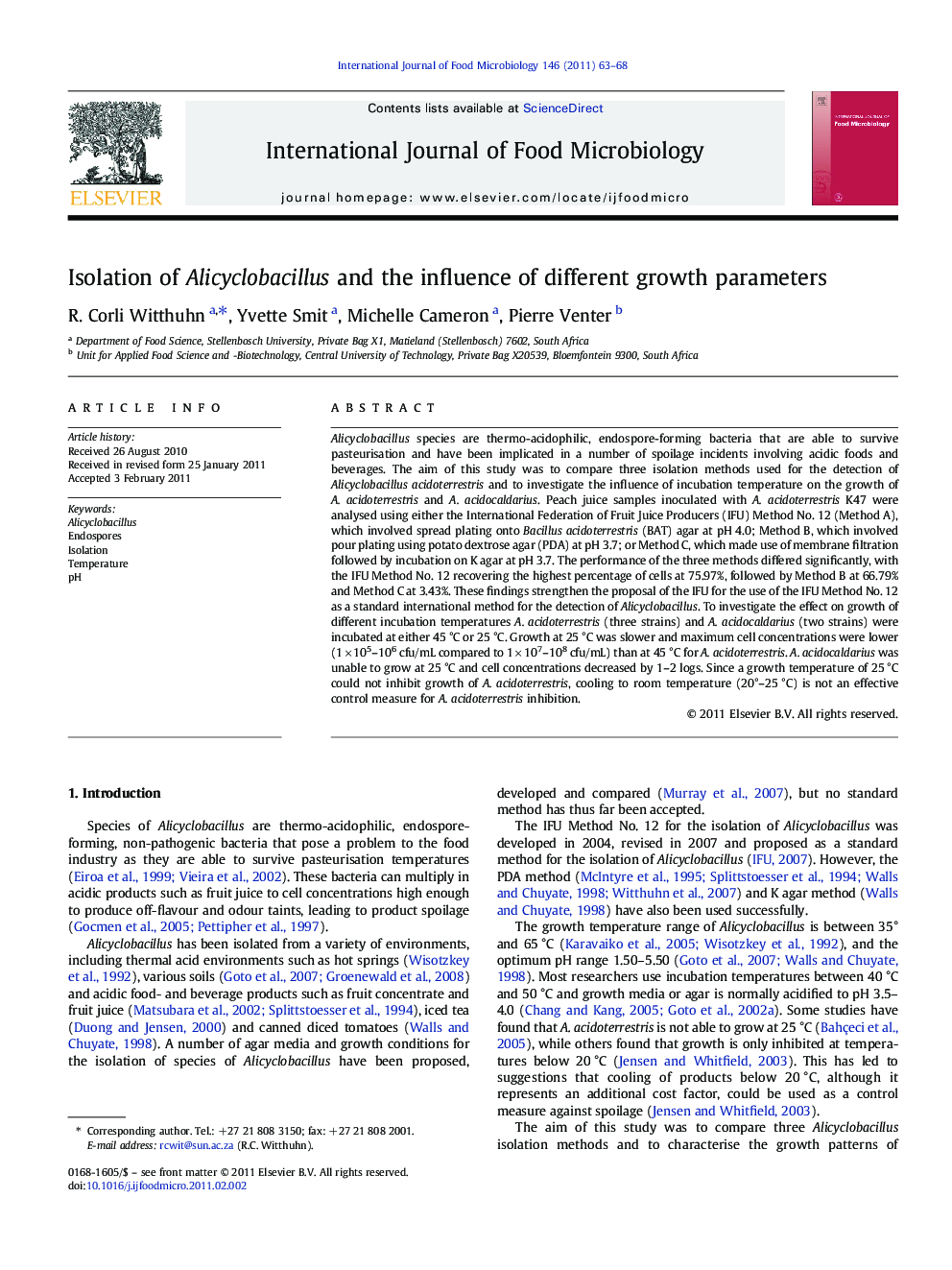| کد مقاله | کد نشریه | سال انتشار | مقاله انگلیسی | نسخه تمام متن |
|---|---|---|---|---|
| 4368688 | 1616672 | 2011 | 6 صفحه PDF | دانلود رایگان |

Alicyclobacillus species are thermo-acidophilic, endospore-forming bacteria that are able to survive pasteurisation and have been implicated in a number of spoilage incidents involving acidic foods and beverages. The aim of this study was to compare three isolation methods used for the detection of Alicyclobacillus acidoterrestris and to investigate the influence of incubation temperature on the growth of A. acidoterrestris and A. acidocaldarius. Peach juice samples inoculated with A. acidoterrestris K47 were analysed using either the International Federation of Fruit Juice Producers (IFU) Method No. 12 (Method A), which involved spread plating onto Bacillus acidoterrestris (BAT) agar at pH 4.0; Method B, which involved pour plating using potato dextrose agar (PDA) at pH 3.7; or Method C, which made use of membrane filtration followed by incubation on K agar at pH 3.7. The performance of the three methods differed significantly, with the IFU Method No. 12 recovering the highest percentage of cells at 75.97%, followed by Method B at 66.79% and Method C at 3.43%. These findings strengthen the proposal of the IFU for the use of the IFU Method No. 12 as a standard international method for the detection of Alicyclobacillus. To investigate the effect on growth of different incubation temperatures A. acidoterrestris (three strains) and A. acidocaldarius (two strains) were incubated at either 45 °C or 25 °C. Growth at 25 °C was slower and maximum cell concentrations were lower (1 × 105–106 cfu/mL compared to 1 × 107–108 cfu/mL) than at 45 °C for A. acidoterrestris. A. acidocaldarius was unable to grow at 25 °C and cell concentrations decreased by 1–2 logs. Since a growth temperature of 25 °C could not inhibit growth of A. acidoterrestris, cooling to room temperature (20°–25 °C) is not an effective control measure for A. acidoterrestris inhibition.
Research Highlights
► Three methods were compared for Alicyclobacillus isolation, IFU Methods no. 12, BAT agar at pH4.0 and PDA agar at pH3.7. The highest Alicyclobacillus recovery was recorded for the IFU method.
► Incubation temperature had a significant effect on the growth of Alicyclobacillus thus temperature could be used as a control measure to prevent or slow the growth of these bacteria.
► Alicyclobacillus acidoterrestris was found to grow at 25 °C, therefore cooling to room temperature (20° – 25 °C) would be ineffective as a control measure for this species of Alicyclobacillus.
Journal: International Journal of Food Microbiology - Volume 146, Issue 1, 15 March 2011, Pages 63–68